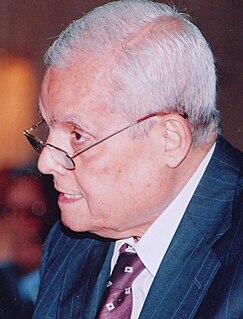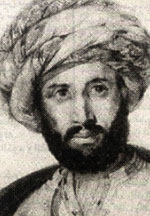 W
WMostafa Abdel Hamid el-Abbadi was a prominent historian of Greco-Roman Egypt and an Egyptian public intellectual. Most recently Emeritus Professor in Classics at the Alexandria University, he was credited with proposing the revival of the ancient library of Alexandria, a project embraced by UNESCO in 1986 and completed in 2003. He was later critical of some of aspects of the project as realized by the Egyptian government, telling the New York Times that the library was at risk of becoming "a cultural center" rather than fulfilling its "promise as a world-class research center."
 W
WRaouf Abbas Hamed was an Egyptian historian and a professor of modern history at Cairo University, until his death in 2008. He served as the president of the Egyptian Society of Historical Studies. He filled various senior academic positions, most of which in the Cairo University.
 W
WAhmad Amin (1878–1954) was an Egyptian historian and writer. He wrote a series of books on the history of the Islamic civilization (1928–1953), a famous autobiography, as well as an important dictionary of Egyptian folklore (1953).
 W
WGeorge Habib Antonius, CBE (hon.) was a Lebanese-Egyptian author and diplomat, settled in Jerusalem, one of the first historians of Arab nationalism. Born in Deir al Qamar in a Lebanese Eastern Orthodox Christian family, he served as a civil servant in the British Mandate of Palestine. His 1938 book The Arab Awakening generated an ongoing debate over such issues as the origins of Arab nationalism, the significance of the Arab Revolt of 1916, and the machinations behind the post-World War I political settlement in the Middle East.
 W
WAbdel Salam Haroun is one of the most famous researchers of Arab heritage in the twentieth century.
 W
WTaha Hussein was one of the most influential 20th-century Egyptian writers and intellectuals, and a figurehead for the Egyptian Renaissance and the modernist movement in the Middle East and North Africa. His sobriquet was "The Dean of Arabic Literature" . He was nominated for a Nobel prize in literature fourteen times.
 W
WAbd al-Rahman al-Rafai was an Egyptian historian. He dedicated his life to the study of the roles of the national movement in the history of modern Egypt. His most prominent work was 15 volumes in which he documented the state of Egypt from the late 18th century to the mid-19th century. He was born in Cairo even though his family was from the Levant countries. He graduated from the Khadawia school of law in 1908. He spent most of his life in Cairo but moved to Alexandria for high school.immediately after his graduation he practiced law for less than a month until Mohammad Farid محمد فريد asked him to become the editor of the Major General Al-San newspaper بجريدة اللواء لسان and this proved to be the first step in his life as a historian and a politician.
 W
WYounan Labib Rizk was a prominent Egyptian historian and literary figure. He was a professor of history at Ain Shams University in Cairo; and was also appointed a member of the History Committee of the Supreme Council for Culture. He was formerly Director of Historical Studies at the Institute of Research and Arab Studies. Rizk was a prolific writer with a weekly column appearing in Al-Ahram newspaper where he founded and headed the History Studies Centre. He was the author of several esteemed publications which rendered him an authority on Modern History, which was the subject of his MA and PhD degrees in 1963 and 1967 respectively. Rizk received numerous awards and medals, including State Incentive Award in Social Sciences in 1995. On the national level, he played a significant role in the dispute over Taba with Israel in 1986–88. The issue was subject to international arbitration and was ruled in Egypt's favor.
 W
WAl-Suyuti ; aka Jalaluddin; was an Egyptian scholar, historian and jurist. From a family of Persian origin, he was described as one of the most prolific writers of the Middle Ages. His biographical dictionary Bughyat al-wuʻāh fī ṭabaqāt al-lughawīyīn wa-al-nuḥāh contains valuable accounts of prominent figures in the early development of Arabic philology. He was appointed to a chair in the mosque of Baybars in Cairo in 1486, and was an authority of the Shafii school of thought (madhhab).
 W
WRifa'a al-Tahtawi was an Egyptian writer, teacher, translator, Egyptologist and renaissance intellectual. Tahtawi was among the first Egyptian scholars to write about Western cultures in an attempt to bring about a reconciliation and an understanding between Islamic and Christian civilizations. He founded the School of Languages in 1835 and was influential in the development of science, law, literature and Egyptology in 19th-century Egypt. His work influenced that of many later scholars including Muhammad Abduh.
 W
WAhmed Tawfik Taymour Pasha (1871–1930) was an Egyptian writer and historian. Taymour Pasha was born on 6 November 1871 in Cairo to a family of the Egyptian elite, his father Isma'il Taymur being of Kurdish origin and his mother of Turkish descent.